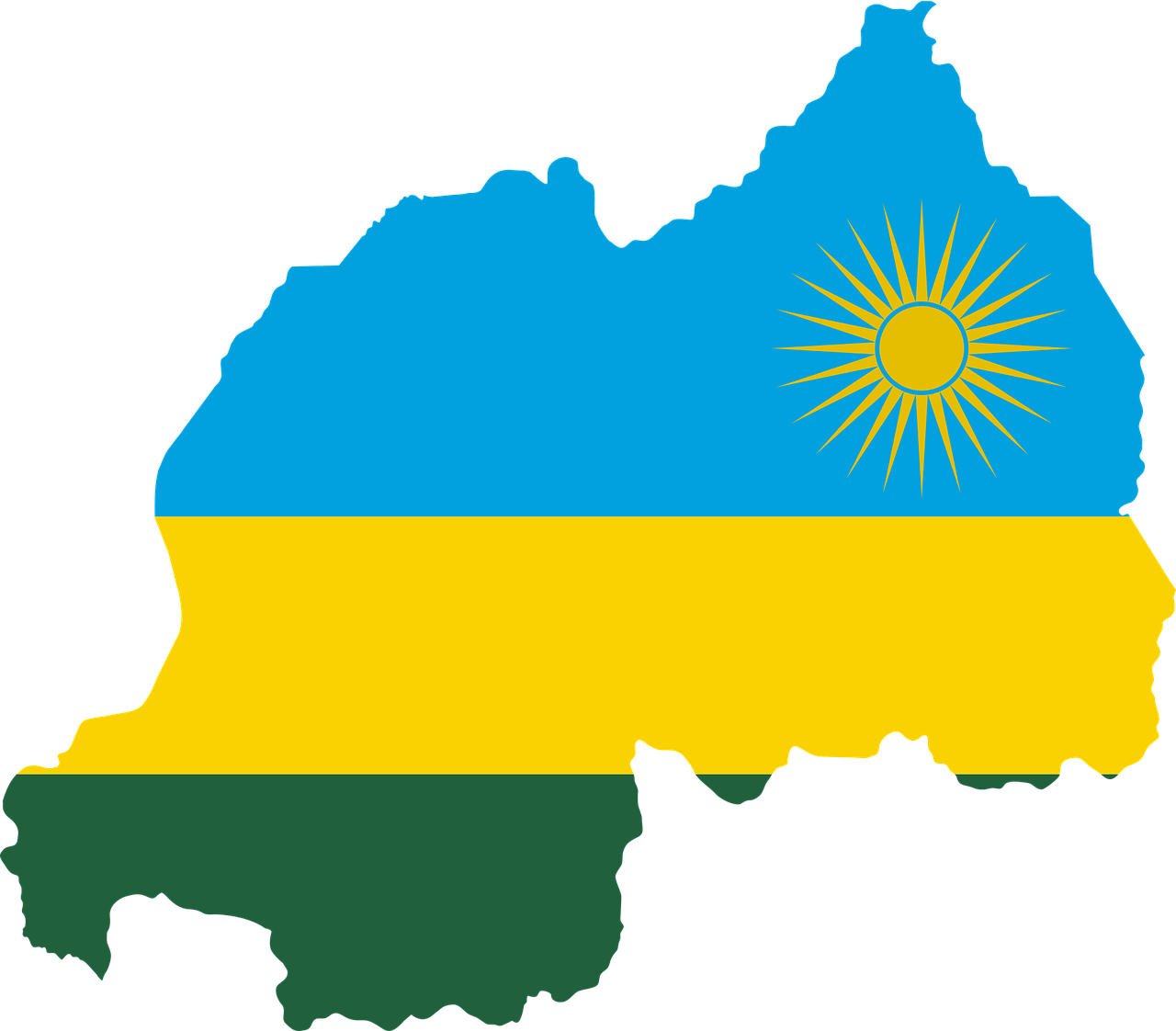Rwanda
Overview
Rwanda, often referred to as the "Land of a Thousand Hills," stands as a beacon of hope and transformation in East Africa. With its strategic location in the heart of the continent, Rwanda showcases a blend of history, culture, and innovation. From the vibrant streets of Kigali to the serene shores of Lake Kivu and the majestic Virunga Mountains, the country offers a diverse landscape that is both picturesque and rich in biodiversity.
Kigali, the capital city, embodies Rwanda's spirit of renewal and progress. With its modern infrastructure, clean streets, and burgeoning tech hubs, it serves as a testament to the nation's rapid development and its aspirations for the future. As a hub of commerce, technology, and culture, Kigali attracts both businesses and tourists, offering a glimpse into Rwanda's dynamic blend of tradition and modernity.
Economically, Rwanda has made significant strides since the tragic events of the 1994 genocide. While agriculture, especially coffee and tea exports, remains a cornerstone, there's a growing emphasis on sectors like tourism, information technology, and finance. The nation's focus on sustainable development and innovation is evident in initiatives like the Kigali Innovation City and the push for a cashless economy.

Culturally, Rwanda boasts a rich heritage rooted in its traditional dances, crafts, and storytelling. The country's festivals, such as the annual Gorilla Naming Ceremony (Kwita Izina), not only highlight its conservation efforts but also its deep cultural significance. Music, dance, and art play pivotal roles in celebrating the nation's history and its optimistic outlook for the future.
Rwanda's strategic vision, commitment to good governance, and emphasis on education and technology position it as an attractive destination for investors and entrepreneurs. While challenges remain, the nation's resilience, unity, and vision make it a shining example of Africa's potential and promise.
Key indicators

Population

GDP per capita

Nominal GDP

Purchasing Power Parity GDP

Main export

Foreign direct investment

Stock market capitalization

GDP growth rate
- Economic Snapshot
- Business Environment
- Startup Ecosystem
- Infrastructure & Technology
- Opportunities & Challenges
- Cultural Insights
Rwanda, known as the "Land of a Thousand Hills," stands as a beacon of economic resilience and transformation in East Africa.
Historically reliant on agriculture, particularly coffee and tea exports, Rwanda has embarked on a journey of economic diversification over the past few decades.
The government's Vision 2020 and subsequent Vision 2050 have laid out ambitious plans for transitioning from an agrarian economy to a knowledge-based one. Tourism, especially gorilla trekking in the Volcanoes National Park, has become a significant source of revenue, drawing visitors from around the world.
Rwanda's commitment to creating a business-friendly environment is evident in its regulatory reforms and strategic initiatives. The Rwanda Development Board (RDB) has been instrumental in streamlining business registration processes, making it possible to register a business within a day. This efficiency, combined with efforts to maintain a corruption-free environment, has positioned Rwanda as a top destination for foreign direct investment in the region. Kigali, with its clean streets and organized urban planning, serves as a testament to Rwanda's broader governance and developmental philosophy.
The startup scene in Kigali is burgeoning, driven by a combination of local entrepreneurial spirit and international collaborations. The establishment of the Kigali Innovation City, a flagship project, aims to position Rwanda as a tech and innovation hub in Africa. This initiative, coupled with the presence of institutions like the African Institute of Mathematical Sciences (AIMS) and Carnegie Mellon University Africa, is fostering a culture of innovation and research. Startups in Rwanda are not just limited to tech; they span sectors like agriculture, healthcare, finance, and education, reflecting the nation's diverse economic ambitions.
Rwanda's infrastructural development is comprehensive. Modern roads crisscross the hilly terrain, connecting even the most remote areas. The expansion of the Kigali International Airport and plans for a new airport in Bugesera highlight the nation's ambitions to become a regional aviation hub. In the realm of technology, initiatives like the "One Laptop Per Child" program and the push for cashless transactions showcase Rwanda's digital aspirations. The country is also investing heavily in renewable energy, with solar farms and hydroelectric projects aiming to achieve energy self-sufficiency.
Rwanda's strategic development plans present a plethora of opportunities for investors and businesses. Sectors like real estate, agribusiness, information technology, and manufacturing are ripe for exploration. The government's emphasis on Special Economic Zones (SEZs) offers incentives for businesses to set up operations in Rwanda. However, the nation faces challenges, including land scarcity due to its small size, the need for skilled labor in specialized sectors, and external trade dependencies.
Here are some cultural insights for Rwanda:
- Greetings: Rwandans are generally very friendly and welcoming. The most common greeting is "Amahoro kume!", which means "Peace be upon you!". It is customary to shake hands and make eye contact when greeting someone.
- Hospitality: Rwandans are known for their hospitality. They often invite guests into their homes and offer them food and drinks. It is considered rude to refuse a Rwandan's hospitality.
- Dressing: Rwandans dress modestly. Women usually wear long skirts or dresses, and men usually wear long pants and shirts. It is important to dress respectfully when visiting Rwanda.
- Food: Rwandan food is delicious and diverse. Some of the most popular dishes include:
- Ugali: A starchy staple food made from cassava, plantain, or millet flour.
- Isombe: A leafy green vegetable stew made with cassava leaves, peanut butter, and beef or goat.
- Ibirayi: A sweet potato and banana stew made with coconut milk.
- Music and dance: Rwanda has a vibrant music and dance culture. Traditional Rwandan music is often performed using drums, flutes, and string instruments. Traditional Rwandan dance is characterized by its energetic and graceful movements.
- Language: The official languages of Rwanda are Kinyarwanda, French, and English. However, Kinyarwanda is the most widely spoken language in the country.
Here are some tips for businesses and investors operating in Rwanda:
- Be respectful of Rwandan culture and traditions. This includes being respectful of traditional customs and beliefs.
- Be patient and understanding. Rwandans are generally relaxed and easy-going. It is important to be patient and understanding when doing business in Rwanda.
- Build relationships. Rwandans value personal relationships in business. It is important to build rapport with your Rwandan counterparts before getting down to business.
- Be ethical and responsible. Rwandans are looking for businesses that are ethical and responsible in their dealings.

Investment Landscape & Opportunities in Rwanda
- Start-up & SME Investments
- Impact & Green Investments
- Government Bonds & Stock Market
- Public-Private Partnerships
- Foreign Direct Investments
- Commodities & Infrastructure Investments
- Real Estate Development
- Cultural and Creative Industries

